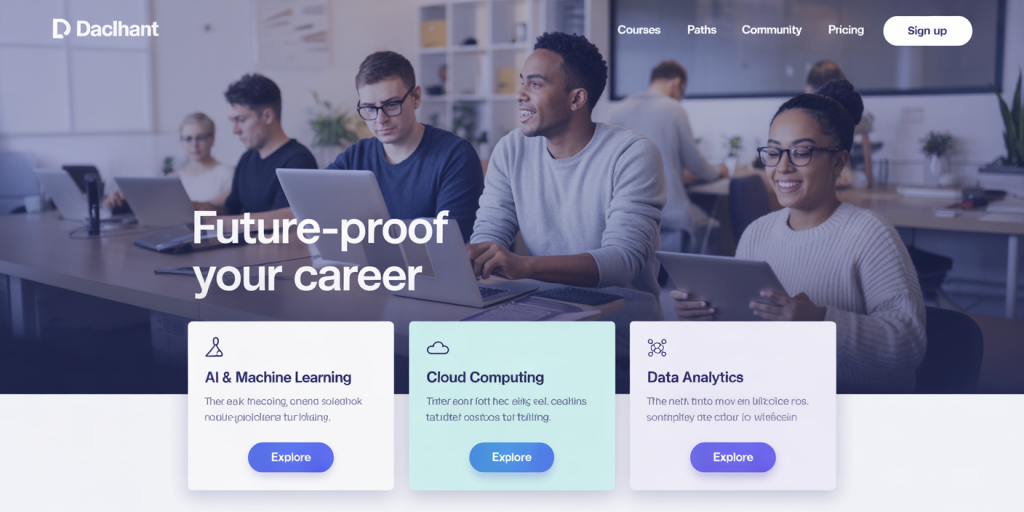In today’s fast-paced global economy, job markets are evolving more rapidly than ever before. Technological advancements, shifting industry demands, and the rise of remote work have transformed the way professionals navigate their careers. According to the World Economic Forum’s Future of Jobs Report 2023, nearly 50% of all employees will need reskilling by 2025 due to automation and other technological disruptions. Staying relevant means continuously adapting, acquiring critical skills, and aligning oneself with emerging trends. This article explores effective strategies to maintain professional relevance amid change, supported by practical examples and data-driven insights.
Understanding the Dynamics of a Changing Job Market
The job market’s volatility is largely driven by automation, artificial intelligence (AI), and globalization. For example, industries such as manufacturing have seen significant disruptions from robotics, leading to a decline in routine manual jobs. Conversely, sectors like data science, cybersecurity, and renewable energy have experienced rapid growth. The U.S. Bureau of Labor Statistics projected a 31% growth in cybersecurity jobs by 2031, highlighting shifts in demand for specific skill sets.

These changes necessitate proactive career management. A static skill set is no longer sufficient. Employees must embrace lifelong learning, adaptability, and flexibility. For instance, traditional retail workers are increasingly transitioning into e-commerce roles, which require digital literacy and customer experience knowledge. Recognizing the market forces that drive such transitions is the first step in crafting a resilient career path.
Continuous Learning and Skill Development
One crucial method of ensuring job relevance is the commitment to continuous learning. The McKinsey Global Institute estimates that by 2030, up to 375 million workers worldwide may need to change occupational categories due to automation. Upskilling and reskilling help professionals remain competitive and open new opportunities. Platforms like Coursera, Udemy, and LinkedIn Learning offer accessible courses in trending areas like AI, cloud computing, and data analytics, enabling workers to adapt quickly.

Real-world examples reinforce this strategy. Amazon, a major employer, invests heavily in training programs to reskill workers for tech-driven roles. Its “Upskilling 2025” initiative aims to train 100,000 employees in IT and cloud computing by 2025. Such corporate-led efforts show the importance of skill renewal to meet evolving organizational needs and demonstrate how individuals can benefit from employer-sponsored learning opportunities.
| Skill Area | Growth Rate (2021-2031) | Average Salary (US) | Key Employers |
|---|---|---|---|
| Data Science | 36% | $96,000 | Google, Facebook, IBM |
| Cybersecurity | 31% | $103,000 | Palo Alto Networks, Cisco |
| Renewable Energy | 21% | $75,000 | Tesla, Siemens, Vestas |
| Traditional Retail | -5% | $28,000 | Walmart, Target (declining) |
This comparative table highlights growing industries and salary expectations versus traditional roles facing decline, emphasizing the need to pivot skills based on market trends.
Embracing Digital Literacy and Technological Fluency
In the modern workforce, digital literacy is no longer optional but a critical foundation. Understanding software tools, data literacy, and basic programming skills empower employees to work efficiently and innovate. The COVID-19 pandemic accelerated digital transformation, driving 76% of employers worldwide to either maintain or increase digital skills priority (LinkedIn Learning 2022 Workplace Report).

Consider the example of teachers who shifted to online learning during the pandemic. Those with advanced digital skills adapted faster, integrating technology for remote instruction. Similarly, marketing professionals who mastered digital advertising tools and analytics experienced career growth, unlike counterparts relying solely on traditional techniques.
Technological fluency also enhances problem-solving and collaboration, which are increasingly valued in hybrid work environments. From mastering CRM software to understanding AI-driven decision support systems, employees who embrace technology often find themselves indispensable.
Networking and Personal Branding in a Modern Context
While skills are paramount, professional visibility and connections remain vital for career sustainability. Networking extends beyond attending events to engaging on digital platforms like LinkedIn and industry-specific forums. A study by Jobvite in 2023 found that 85% of jobs are filled through networking rather than direct applications, underscoring its importance.
For example, data scientist Jane Smith leveraged LinkedIn to share her project insights, participate in discussions, and connect with industry leaders. As a result, she secured a role at a leading AI startup that valued her active presence and knowledge sharing. Building a personal brand through blogs, podcasts, or webinars can also amplify visibility, establishing professionals as industry thought leaders.
Networking enriched by personal branding creates a virtuous cycle, enhancing access to opportunities and fostering collaborations that drive innovation and growth.
Adapting to Flexible and Remote Work Environments
The pandemic permanently altered work arrangements, making flexibility and remote work central themes. According to Gallup (2023), 58% of employees prefer remote or hybrid work, compelling companies to redesign workflows and employee engagement strategies. Workers adept at managing time, communication, and productivity remotely gain a distinct advantage.
Take the case of software developers, many of whom successfully transitioned to freelance and contract roles globally. Embracing remote work platforms such as GitHub, Slack, and Jira helped them collaborate efficiently across time zones, mitigating physical location constraints.
Adapting also means developing soft skills like self-motivation, digital etiquette, and emotional intelligence to navigate virtual workplaces effectively. Employees who demonstrate these capabilities frequently report higher job satisfaction and career longevity in an evolving environment.
Future Perspectives: Navigating the Next Decade of Work
Looking forward, the job market will continue to undergo seismic changes influenced by AI advancements, climate challenges, and demographic shifts. The emergence of jobs we cannot yet fully envision urges individuals to cultivate adaptability and strategic foresight. The World Economic Forum predicts roles such as AI trainers, virtual environment designers, and sustainability managers will gain prominence by 2030.
Lifelong learning ecosystems will expand, with micro-credentials and modular courses providing flexible upskilling routes. Workers who harness artificial intelligence to augment their roles, rather than fearing displacement, will unlock unparalleled creative and productive capacities.
Moreover, global interconnectivity will demand cultural competence and multilingual communication as key employability factors. Hybrid human-machine collaboration will elevate complex problem-solving, prompting professionals to balance technical expertise with empathy and critical thinking.
In this evolving landscape, remaining relevant means viewing change as an opportunity rather than a threat. Building diverse skill sets, fostering robust networks, embracing technology, and honing adaptability will underpin career success for decades to come.

Deixe um comentário